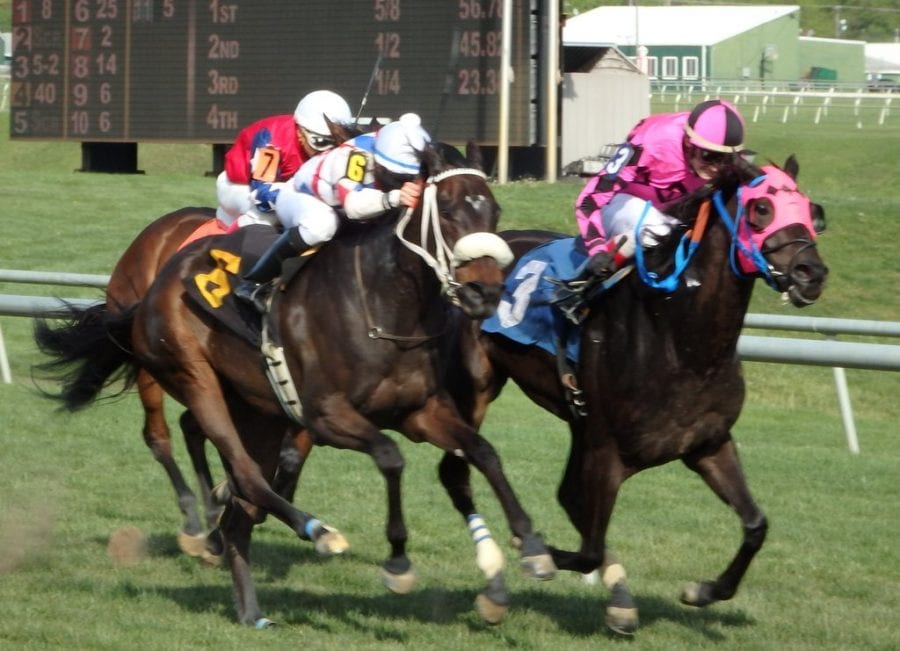Maryland adopts “graded stakes” testing on all samples

Photo by The Racing Biz.
by Frank Vespe
In a move made with little fanfare, the Maryland Racing Commission earlier this year began testing all equine samples to graded stakes protocol, Commission executive director Mike Hopkins said June 3.
The move to upgrade the state’s testing came following the mid-March mid-Atlantic regulators meeting, although Hopkins said it was something that had been under consideration for some time previously.
“You’ve got the same type of testing going on in New Jersey and Delaware,” Hopkins said. “So we’re making it all consistent.”
According to the Thoroughbred Owners and Breeders Association, graded stakes-level testing requires the Commission to test for 213 drugs. Of those, 103 are mandatory — meaning the Commission must test for them — and the remaining 110 can be chosen from a broader list.
The testing regime is further broken down by the Association of Racing Commissioners International’s drug classification system. From the most serious and dangerous group, Class 1, for example, the Commission is required to test for 50 drugs (20 mandatory and 30 optional), while for the least serious group, Class 4, it must test for 39.
Hopkins said that, in Maryland, the primary difference from previous practice would be that the state’s designated testing lab, Truesdail Laboratories, would test for “a broader spectrum” of drugs in urine, which he said is “a medium used for testing for certain specific drugs you may not find in blood.”
Though such medications are metabolized too quickly to be found in the blood stream in post-race testing, they typically leave traces of their presence in the horse’s urine.
Because the testing is more stringent, it is also more expensive. Hopkins estimated that it might cost as much as 30 percent more than the lesser regimen the state had previously followed. Those fees are picked up by the Maryland Jockey Club (MJC), which owns the state’s racetracks.
“We agreed to step up,” said MJC president Sal Sinatra. “I just wanted to make sure we were all consistent, all uniform.”
In conversations, several horsemen, as well as veterinarians who practice on Maryland backsides, said they were aware that the Commission’s testing regime had changed. But none was aware what specifically those changes were.
Since the change in testing regime, the Commission has called a total of three positives on horses that ran in April and May. All three, to trainers Marcus Vitali, Mark Shuman, and Patrick Daniels, were for so-called “stacking” violations, which occur when a horse is found to have two non-steroidal anti-inflammatory drugs in its system. All three were fined and assessed two multiple medication violation points, and their horses were not disqualified.







